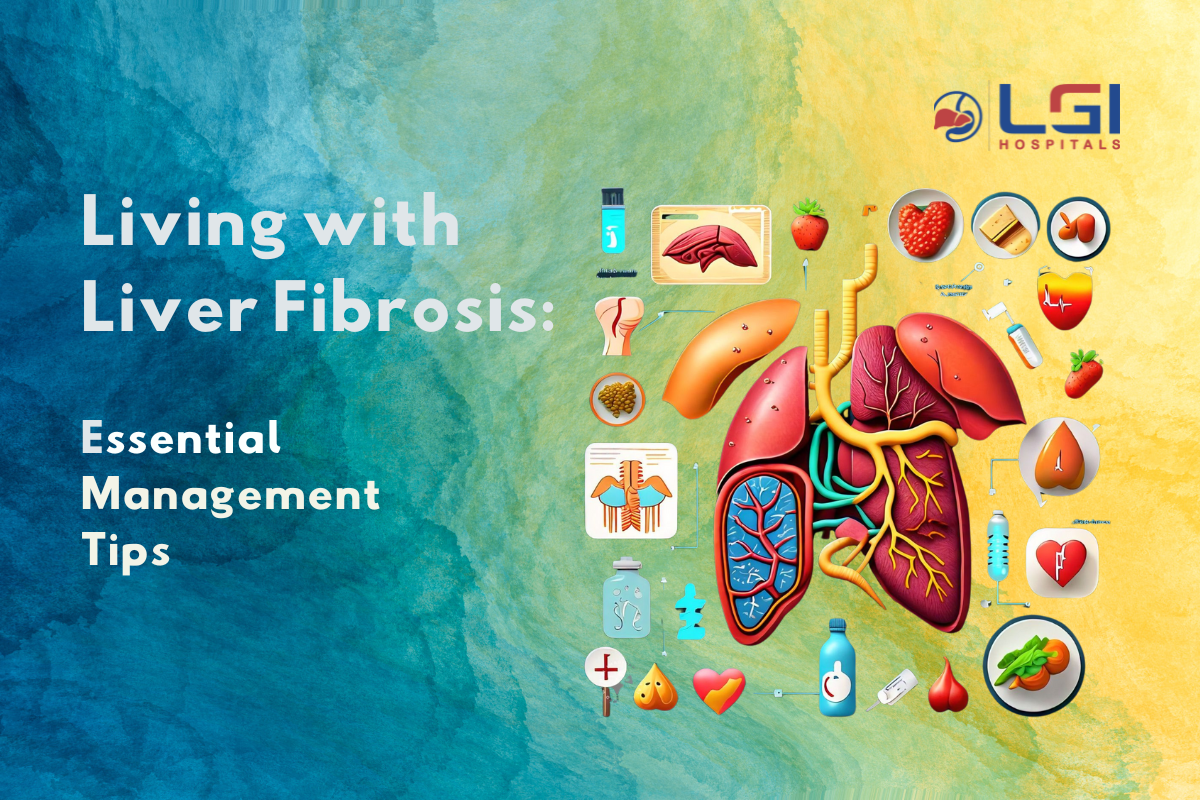Liver fibrosis is a condition where healthy liver tissue is gradually replaced by scar tissue due to ongoing inflammation or injury. Over time, this scarring can disrupt the liver’s ability to function properly, potentially leading to more severe conditions like cirrhosis. The key to managing liver fibrosis lies in adopting lifestyle changes that can slow the progression of the disease and support liver health. By making informed choices, you can live well with liver fibrosis and maintain a good quality of life.
Essential Lifestyle Changes for Managing Liver Fibrosis
Diet and Nutrition: Nourishing Your Liver
Diet plays a critical role in managing liver fibrosis. A balanced diet rich in fruits, vegetables, whole grains, and lean proteins supports liver function and overall health. Foods high in antioxidants, like berries and leafy greens, can help protect the liver from further damage. On the other hand, it’s important to limit the intake of processed foods, sugars, and unhealthy fats, which can strain the liver and worsen fibrosis.
Exercise and Physical Activity: Keeping Your Body Active
Regular physical activity is another essential component in managing liver fibrosis. Exercise helps maintain a healthy weight, reduces fat accumulation in the liver, and improves overall well-being. Low-impact exercises like walking, swimming, and yoga are excellent options for those with liver conditions. Staying active not only benefits your liver but also boosts your energy levels and mood.
Avoiding Alcohol and Toxins: Protecting Your Liver
Avoiding alcohol is one of the most crucial lifestyle changes for anyone with liver fibrosis. Alcohol is a major contributor to liver damage, and even small amounts can accelerate fibrosis. Additionally, minimizing exposure to environmental toxins, such as chemicals and pollutants, further protects your liver. Simple changes like using natural cleaning products and avoiding tobacco smoke can make a significant difference.
Stress Management: Maintaining Mental and Emotional Well-being
Managing stress is important for both your mental and physical well-being, especially when living with a chronic condition like it. Chronic stress can negatively impact your liver health, so it’s essential to find ways to relax and de-stress. Techniques like meditation, deep breathing exercises, and counseling can be incredibly beneficial in managing stress and maintaining a positive outlook.
Medical Management and Monitoring: Staying on Top of Your Health
While lifestyle changes are vital, regular medical monitoring is also necessary to manage liver fibrosis effectively. Regular check-ups, blood tests, and imaging studies help track the progression of fibrosis and ensure that any complications are addressed promptly. Your healthcare provider may also recommend medications or other treatments to help manage your condition.
Comprehensive Support: A Holistic Approach to Liver Health
Living with liver fibrosis requires a holistic approach that addresses both physical and emotional well-being. It’s important to seek support from a healthcare team that understands the complexities of the condition and can offer personalized guidance. Surrounding yourself with a network of supportive family and friends can also make a big difference in managing the challenges of liver fibrosis.
If You Have Liver Concerns, We’re Here to Help
Living with fibrosis can be challenging, but with the right lifestyle changes and regular medical care, it’s possible to manage the condition effectively. If you have concerns about your liver health or need expert advice, don’t hesitate to reach out to LGI Hospital. Our team of specialists is here to support you in maintaining your liver health and improving your quality of life.

